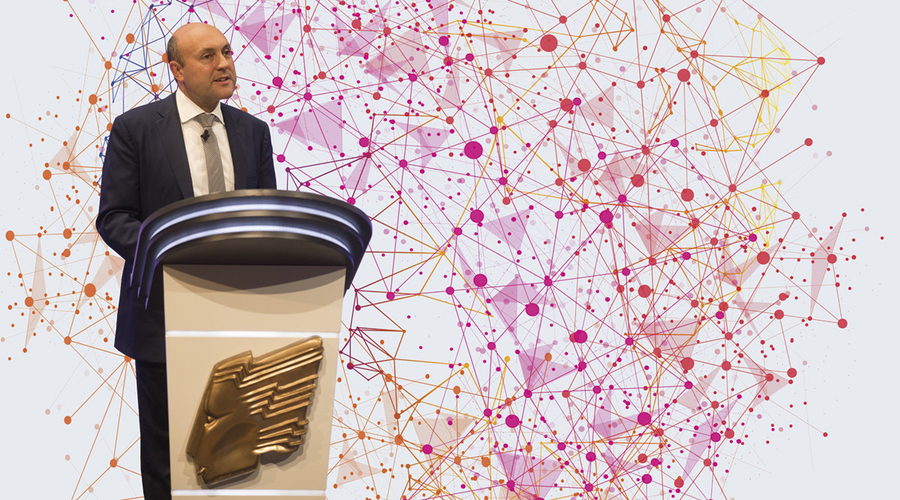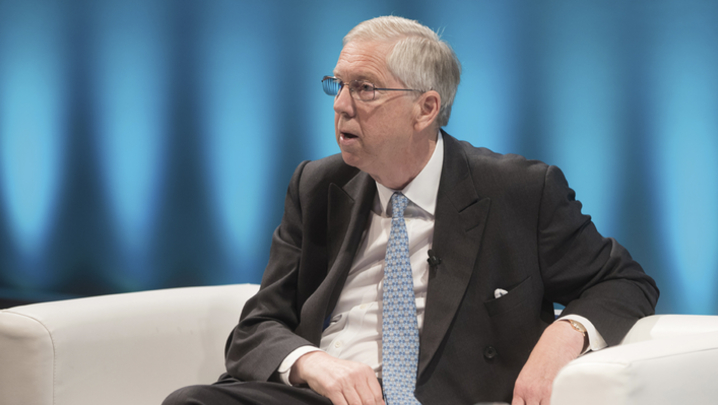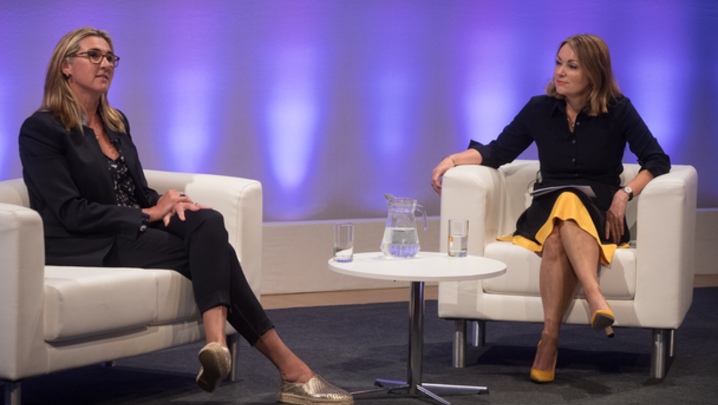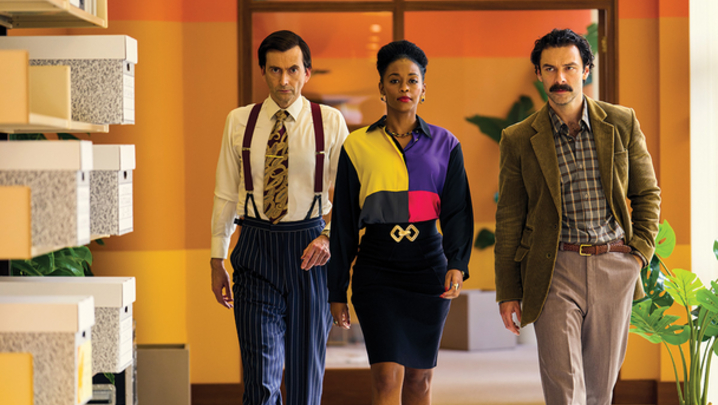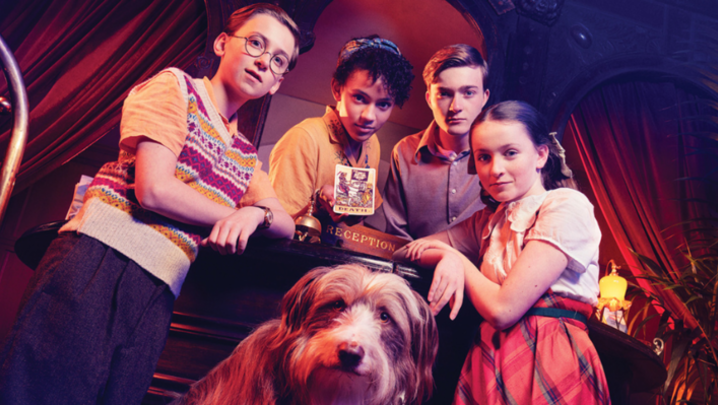Steve Clarke listens as senior industry figures identify British TV’s strengths and challenges
How well equipped is British TV to make the most of the changes that technology entrepreneurs are unleashing around the world?
There is a consensus that, creatively, UK television continues to punch above its weight. Equally, there is a fear that the unregulated tech giants threaten domestic broadcast businesses as never before.
Opening the 2017 RTS Cambridge Convention, conference chairman and Sky group COO Andrew Griffith stressed the health of British television while also acknowledging the growing competition from the online behemoths.
“We need to address the imbalance between our – rightly – regulated industry and the lightly regulated online world,” he said. Griffith added that, on the internet, there was no acknowledgement of, let alone adherence to, rules such as the ban on political advertising during elections, the protection of minors or guarding the prominence of PSBs on electronic programme guides.
“It’s a lop-sided contest [between UK broadcasters and the likes of Facebook] and, left unchecked, represents a real challenge,” he continued. “At best, our valued standards of content protection are being eroded and, at worst, fundamentally undermined.”
Griffith insisted: “As an industry, now is the time for all of us to make a strong case for action to policymakers to level the playing field so that we in broadcasting are able, sustainably, to promote the content and the values that the British public expect.”
And, during a time of political shockwaves – Brexit, Trump and the UK general election – and a decline in trust in our institutions, could entertainment companies maintain public goodwill, he asked. In one sense, however, the status quo was a good place to be, as linear TV continued to dominate viewing habits across a wide range of demographics.
The myth that young people shun live TV was exploded by Thinkbox’s CEO, Lindsey Clay. As proof, she reminded delegates of millennials’ recent obsession with the reality show Love Island, a breakout summer hit for ITV2.
Sky’s managing director of content, Gary Davey, stressed that, in terms of creativity and programme quality, British TV was setting new benchmarks. “There’s no question that, today, Britain has the most diverse, most energised and most creative television output anywhere in the world,” he said.
Joining Griffith and Davey on stage, two expert witnesses were invited to assess the themes of this wide-ranging session from the opposing perspectives of linear broadcast and the purely digital domain.
Up first was Wired editor-at-large and techno-evangelist David Rowan, who was followed by Thinkbox’s Clay.
Rowan offered some provocative thoughts for the broadcasters sitting in the room. His first clip featured an interview with German YouTube star JP Kraemer, who told delegates that TV was an anachronism.
“I am not interested in doing TV any more,” announced Kraemer, who first found fame fronting a German documentary soap for sports channel DSF. “TV is old… The main problem is most people from TV want to keep the money. When you do YouTube, it’s all yours.”
Rowan said that Kraemer’s YouTube channel, aimed at petrol-heads, attracts 25 million views per month.
Kraemer was dismissive of the huge production budgets that companies such as The Crown’s producer, Left Bank, could command: “I don’t think I will need a big budget, because what people really like is entertainment that looks real.”
If this metaphorical earthquake was not bad enough, there were further shocks for the broadcasters as Rowan got into his stride.
In another clip, Facebook CEO Mark Zuckerberg made the claim in a recent talk that physical TV sets were effectively redundant. To watch their favourite shows, people could now download a $1 app – from Facebook, of course – to catch up with their viewing, rather than spend a pot of money on the latest smart TV.
While emphasising the speed of technological change, Rowan reminded the convention that human behaviour was often irrational.
“A survey asked people what would be the hardest thing to explain to someone from the 1950s about modern life,” he said. “My favourite answer was: ‘I have a device in my pocket capable of accessing the entirety of all information known to man and I use it to look at pictures of cats and get in arguments with strangers.’”
More seriously, the Wired executive told the audience that they should consider emulating Facebook and do more to harness data to help transform their businesses. Greater personalisation was one area where traditional TV companies could deploy data to keep audiences satisfied, argued Rowan.
Meanwhile, artificial intelligence offered the potential to customise stories to suit an individual’s emotional state, he claimed.
Virtual reality (VR) had been used by film-makers to allow viewers to experience the grimness of refugee camps in the Middle East, without the intermediary of a reporter.
“There’s no gap between you and the programming,” enthused Rowan. “There is no gap between the stage and the audience. You are immersed.” He predicted that it wouldn’t be long before we could travel to space via VR.
If some of this sounded rather far-fetched, Rowan reminded delegates that Spotify, Netflix and the iPhone were each initially written off by highly paid executives from rival companies. Hindsight was, indeed, a wonderful thing.
Taking up the cudgels for linear TV, the next speaker, Clay, told delegates that British television had successfully weathered the disruption of the past decade.

This had been achieved by TV embracing online, ensuring that everyone could access content on their mobile devices regardless of location, and investing in high-quality shows.
Tellingly, if seven-day catch-up viewing is factored in, the average UK viewer watches only four minutes less TV a day than a decade ago – 3 hours 36 minutes compared with 3 hours 32 minutes, according to Barb statistics.
Add in catch-up beyond eight days and box sets, and the amount of viewing increases by a further eight minutes. If viewing on other devices is included, the time spent watching TV goes up again – by another four minutes.
In an analogy that had some delegates scratching their heads, Clay compared the medium of television to the Game of Thrones character Jon Snow.
“He’s the show’s moral centre, he has integrity and the common touch and is a natural leader,” Clay explained.
Many people had tried to kill him off but Snow was a survivor despite being a bit miserable – rather like people who work in TV and who tend to see their industry through a glass half-empty.
Sky’s Davey, who concluded the session, made a similar point when he said that the first time he heard someone predicting the death of TV was in New York 30 years ago at a talking shop run by… Lehman Brothers. And we all know what happened to them.
“It is clear to me that the industry worldwide, and particularly in the UK, is undergoing a genuine creative renaissance.
To me, that will keep driving all our business in the right directions,” said the Sky content boss, who has run TV business in the US, Asia and Europe. In the UK, companies such as Sky had thrived by “staying ahead of the important technology curves that are important to us and help us serve our customers”.
Davey continued: “If I try to quantify the scale of where we’ve got to, if you just look at Sky UK this year, we will deliver nine exabytes [918 bytes] of data across our platforms. That is the equivalent of 117,000 years of high-definition video or, if it were text, 51 times the entire writings of humankind.
“To you and me, that means shows such as Gogglebox, Downton Abbey, The Night Manager, Strictly Come Dancing, Love Island and Taboo, not, of course, forgetting The Great British Bake Off.”
Davey congratulated Channel 4’s departing creative chief, Jay Hunt, and Love Productions on the programme’s successful transition to Channel 4.
The UK was rich in film and TV talent on both sides of the camera, but what singled out British TV from the rest of the world, he said, was the UK’s high tolerance of risk-taking in the shows it commissioned and produced.
“This country has encouraged risk and developed audience behaviour that actually accepts risk. That’s not true everywhere,” insisted Davey. “In fact, in a lot of places – and I think it is true of US network TV – risk gets punished. That’s something that we need to hang on to and to develop. As long as we keep taking risks, we will survive.”
Session One, ‘A world of opportunity’, was introduced by Andrew Griffith, Group COO, Sky, and Gary Davey, MD of content, Sky, with presentations by Lindsey Clay, CEO, Thinkbox, and David Rowan, editor-at-large, Wired UK. The session was produced by Olivia Bonner and Lucy Aitkens.
Clay on young TV addicts
‘There is a lot of pessimism about young people’s viewing, but they were practically clawing each other’s eyes out to watch Love Island. Young people have not switched off.
‘While it is true that the under-35s spend significantly more time on YouTube and SVoD services than older people, they spend a relatively small amount of time watching video on Facebook. But they do still watch DVDs: more than 5% of their overall video viewing per day is of DVDs.
‘Live TV is young people’s most popular form of video… This is what they like to do best,’ Clay said.
She added that, as young people become older, their viewing habits change and they watched more TV on a TV set and less SVoD and online video. But ‘that is not to say this won’t change in the future’.
Lindsey Clay, CEO, Thinkbox
Griffith on blind spots and Brexit
‘The EU referendum highlighted a blind spot in UK broadcasting. As a group, we failed to anticipate or understand the result. Then, to prove that it wasn’t an accident, we did it again earlier this year, during the general election.
‘This tells us that we weren’t as in touch with the mood of the country as we thought. We were too quick to accept received wisdom. Arguably, we did so because we weren’t as representative of the make-up of the UK as we should be.
‘All of us have to work harder to get out of the London bubble.’
Griffith on data and advertising
‘Online video advertising, dominated by just two global players, is experiencing explosive growth in the UK and may already be gaining more than its fair share.
‘There are opportunities for both sides to learn from each other. We in TV could embrace data, introduce greater addressability and be more adventurous in trying new business models.
‘If they’re to build sustainable business models for the long term, digital advertisers would be wise to open up to third-party measurement, recognise that there is a deficit of trust and share the rewards more fairly with content creators.’
Andrew Griffith, Group COO, Sky
Davey on peak drama
‘I disagree with my colleague John Landgraf at FX in the US, when he said that TV drama had reached a peak and too much drama was being produced. There are some 460 dramas in production right now. I find myself in agreement with Ted Sarandos at Netflix, who said, “How can it be wrong to give someone too much of a good thing?”’
Gary Davey, MD of content, Sky

